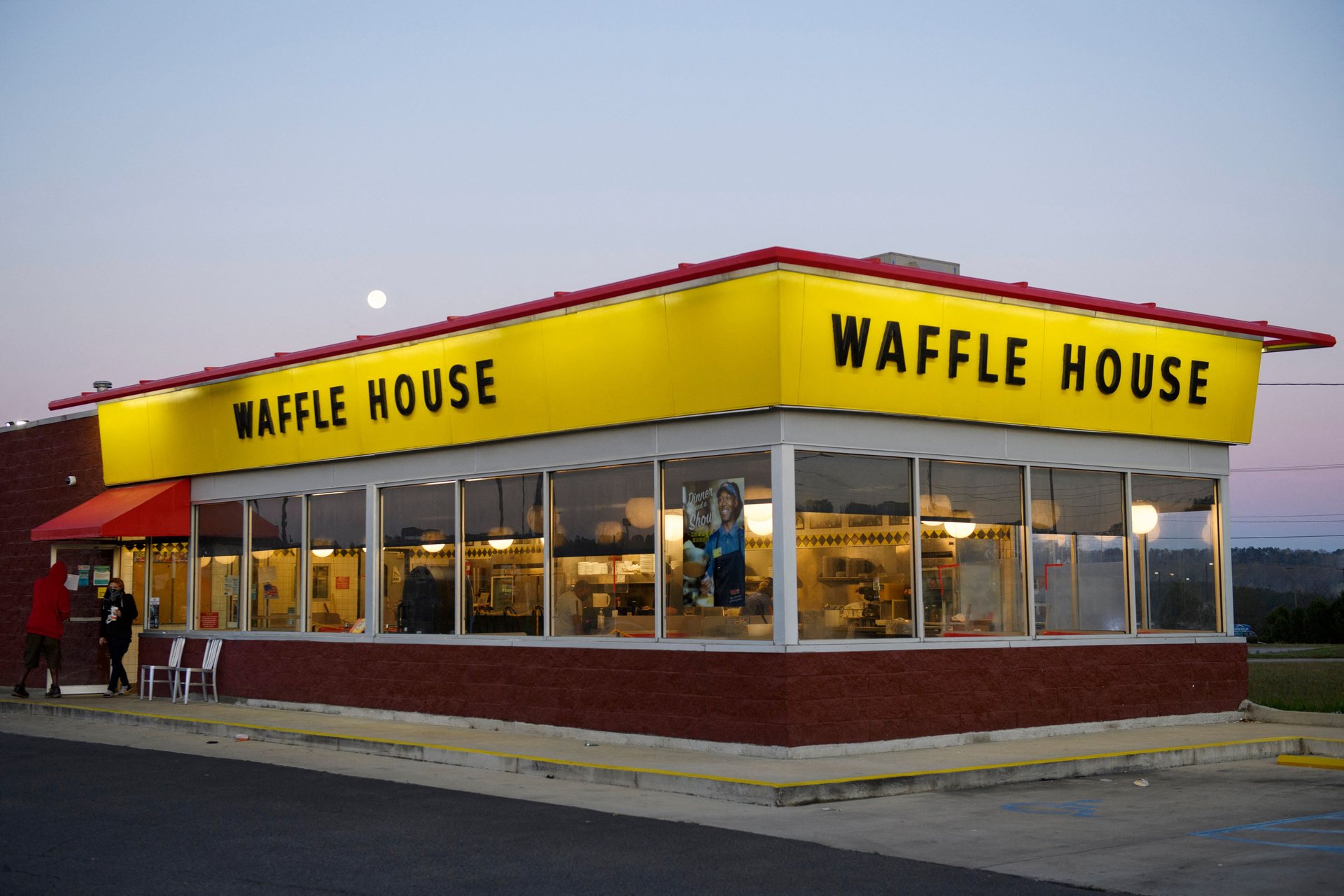Waffle House is adding an egg surcharge as prices keep rising
Customers will pay a 50-cent surcharge, and Waffle House isn't sure when that will change

If it seems like your tab is a little higher at Waffle House, you aren’t imagining it.
Suggested Reading
The quick-service open-24-hours waffle and egg icon with over 2,500 locations in 25 states is adding a 50-cent per egg surcharge to counter rising costs.
Related Content
In a statement provided to Quartz, Waffle House explained the charge:
“The continuing egg shortage caused by HPAI (Bird Flu) has caused a dramatic increase in egg prices. Consumers and restaurants are being forced to make difficult decisions. Effective February 3, Waffle House has implemented a temporary .50 per egg surcharge to all menus.”
The statement also said that the company cannot commit to when the surcharge will be lifted.
“While we hope these price fluctuations will be short-lived, we cannot predict how long this shortage will last,” the statement said, referring to the tight supply of eggs. The statement went on to say that the chain is continuously monitoring egg prices and will adjust or remove the surcharge as market conditions allow.
Waffle House did not respond to follow-up questions. However, the spike in egg prices is related to a combination of supply chain kinks and avian flu. Millions of chickens have had to be culled in response to an avian influenza epidemic sweeping through backyard hen houses and factory farms. According to the USDA, roughly 17 million egg-laying hens were killed in November and December, which is nearly half of all birds killed by the virus in 2024. The culling of birds has resulted in a tighter supply, pushing prices upward and inventory downward.
For instance, signs on coolers in some Kroger (KR) grocery stores in Ohio warn customers of a two-carton per-customer limit. In Florida, Publix supermarkets are also placing limits.
“We are working to bring these products back as soon as possible,” Publix said in a statement. “We encourage customers to check back regularly, as our stores are receiving routine deliveries.”
Axios reports that in Arizona, many retailers have set a two-carton limit on eggs for customers.
According to the Bureau of Labor Statistics, the price of a dozen eggs edged up to $3.65, and in December, the price rose again to $4.15. In some stores, a dozen eggs is as high as $6 or more.
Emily Metz, president, and CEO of the American Egg Board, said retail demand for eggs “has been exceptionally high for a sustained period,” and failing to act quickly to find new ways to fight [highly pathogenic avian influenza, or HPAI] could mean continued challenges for customers and consumers.”
According to USDA reports, egg production hovers around 9 billion monthly in the United States.
First Watch, which operates over 500 breakfast-focused restaurants in the U.S., isn’t planning to follow Waffle House’s lead.
“We have not taken any pricing action directly related to eggs. We continue to monitor the environment while keeping our customer top-of-mind. Our pricing philosophy has been to consider our overall market basket vs any one commodity,” said a spokesperson for Florida-based First Watch.
The chain says they are focusing on adding to the dining experience in other areas.
“Recently we have made several investments into the customer experience, including increasing portions on certain menu items,” the spokesperson said.